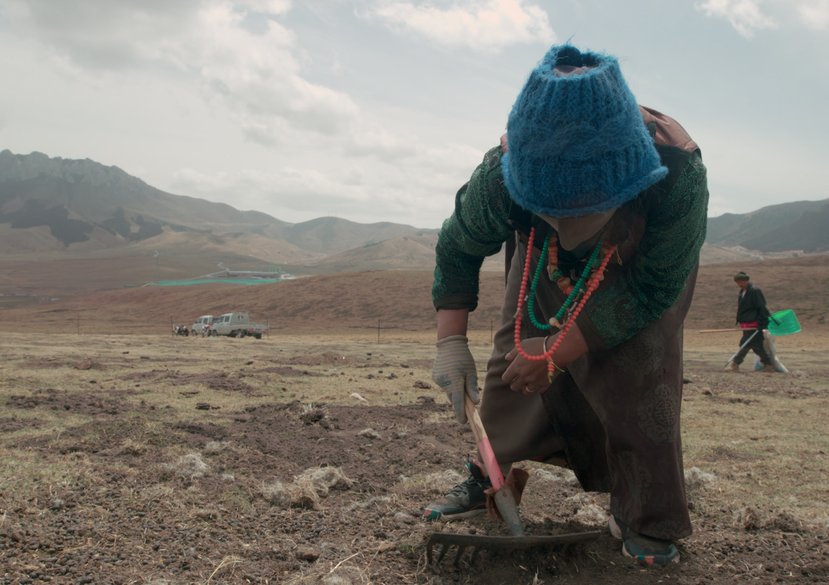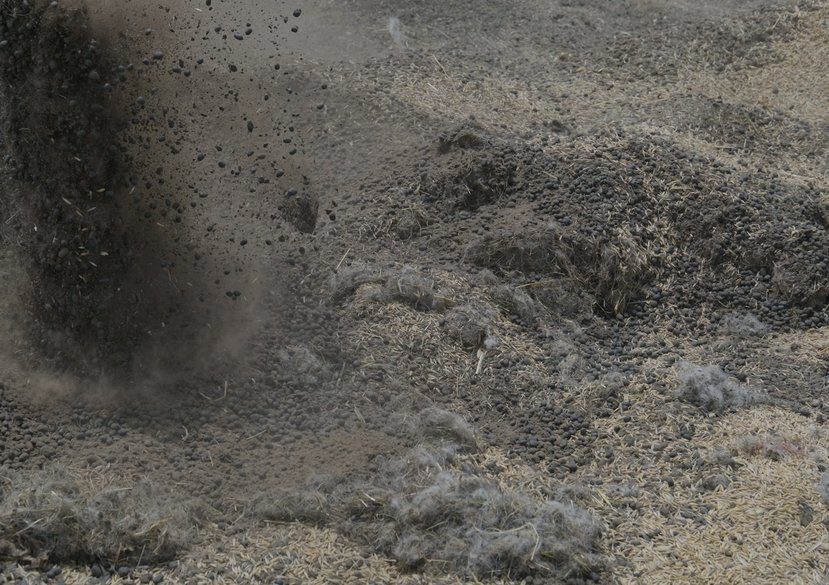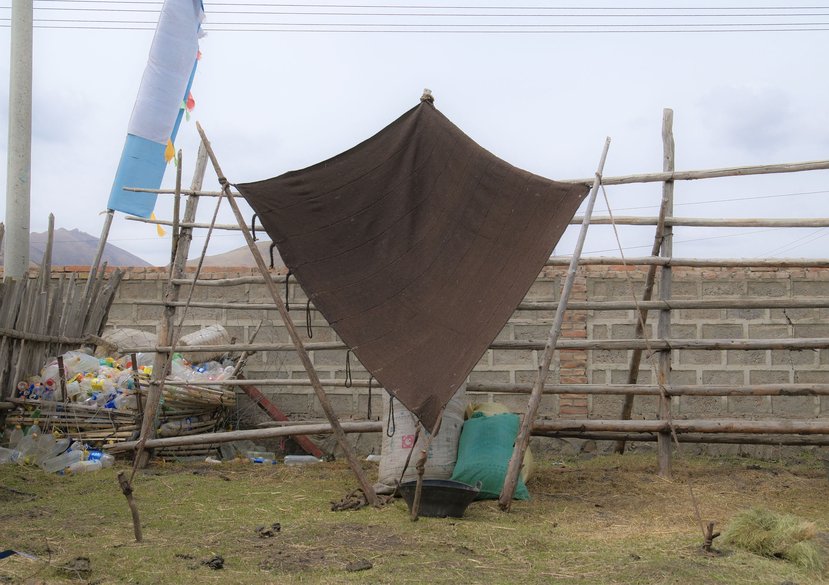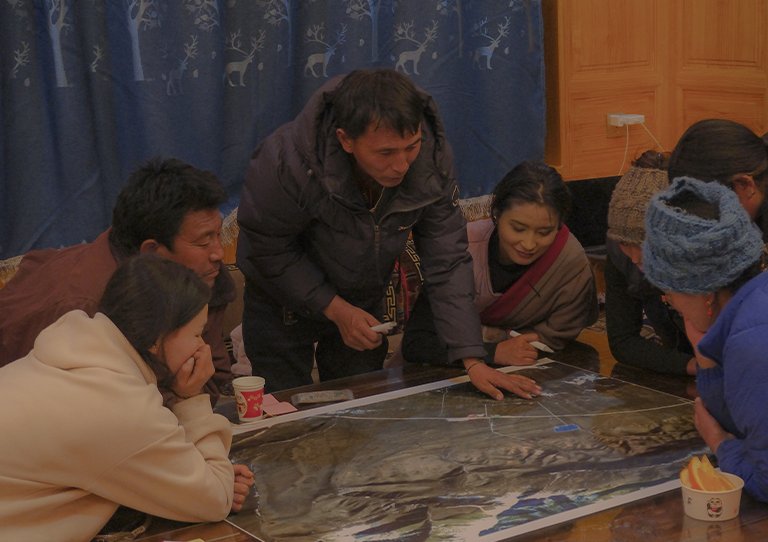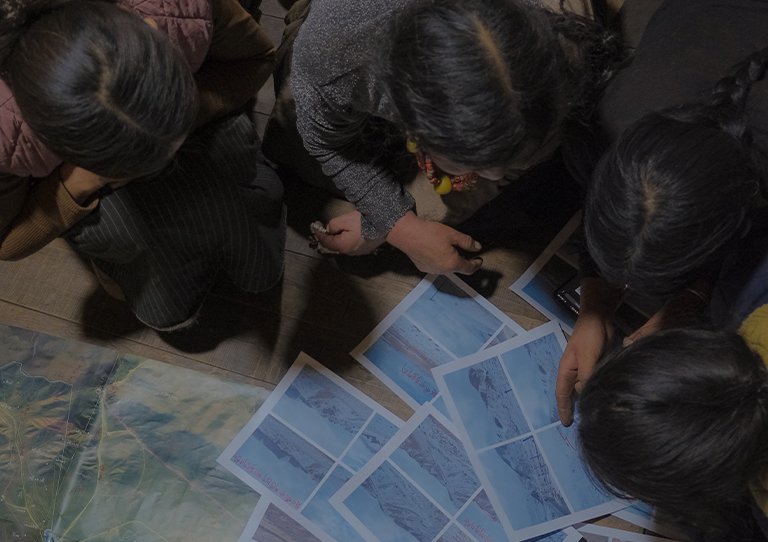
From Representation to Performative (Re)presentation: Collective Research for Environmental Knowledge Transmission
This practice-based PhD examines the role of scientific modes of representation in driving socio-environmental transformations in the Zoige Plateau, home to the world’s largest alpine peat wetland. Over the past three decades, most academic research on Zoige has been dominated by natural science fields such as hydrology, biodiversity, and carbon storage capacity, using representational methods including remote-sensing, environmental cartography, and field survey of biological and geological data. While these studies contribute to scientific knowledge production, these representations are grounded in reductive and scientific-centred views that abstract and simplify the land, its inhabitants and their relations. The deployment of such modes of representation has affected intergenerational systems of environmental knowledge transmission among pastoral communities in Zoige. In this aspect, Zoige offers a paradigmatic example of a broader problem affecting pastoral communities across the world.
This research proposes performative (re)presentation as a practice-based methodology to support intergenerational environmental knowledge transmission at the community scale. Informed by indigenous research frameworks, a key aspect of performative (re)presentation is to embed the researcher within lived experience through community-based practices such as living, eating, working, and engaging in daily life. This allows researcher to build relationships with local communities and engage with their knowledge. Beyond embedded presence, performative (re)presentation seeks to co-develop environmental practices with the community, aiming at catalysing environmental knowledge transmissions both intergenerationally and collectively.
This methodology fosters deeper engagement with the complex relations that constitute local pastoral life and their relations with land, positioning research as a collective and participatory process. Specifically, I focus on a series of land care practices, given that the ongoing loss of grasslands is essential to current local herders' livelihoods. These practices include grass seed collecting and planting, intergenerational conversations, storytelling, and image-making around sacred landscapes, weather observation, and collective care of human and more-than-human beings (e.g., water, yaks and sheep). Such practices not only work toward ecological restoration but also crucially foster local knowledge transmission between local elders and younger generations through oral, visual, and embodied actions. In doing so, these practices mobilise local communities to continue and recreate their local knowledge across generations, both mentally and physically, cultivating solidarity within the community to address emerging socio-ecological issues.
Key details
Area of expertise
Supervisors
Gallery
More about Mingxin
Biography
Mingxin Li is an activist, environmental architect, and PhD candidate working on intergenerational knowledge transmission with the Tibetan community, which aims to form resilience for socio-ecological problems they are facing. Before undertaking his PhD at the Royal College of Art (RCA), he speculated on the symbiotic relationship between bacteria and stromatolites in Chile's Salar de Llamara as a way to resist lithium extraction through mapping, animation, and fiction writing (MA Environmental Architecture).
In 2025, he received the Alumni UK Climate Action Grant funded by the British Council for his participatory and community-based grass seeding actions and pedagogical sessions tackling current land degradation through Tibetan knowledge. In 2024, he received the Food Action Award (Emerging Practice) funded by CLIMAVORE x Jameel at RCA for his work on addressing the shrinkage of yak-herding wetlands in Zoige, located at the eastern edge of the Tibetan Plateau. Currently, he works as an architectural researcher with the INTERPRT studio and the G.I.T. (Territorial Research Group). His collective and individual works have been exhibited internationally, including at the Helsinki Biennial 2023, Galeria Municipal do Porto, Färgfabriken, Het Nieuwe Instituut, Design Chongqing Biennale 2022, and Tongji University.
Degrees
MA Environmental Architecture, Royal College of Art, 2020
BA Environmental Design, Jiangnan University, 2018
Exhibitions
(2025) Bergen Assembly 2025 (upcoming) (INTRPRT and CLIMATE RIGHTS). Bergan Assembly 2025, Norway.
(2025) 'ØYFJELLET: From the Frontline of Land Rights in Sápmi' (INTERPRT and CLIMATE RIGHTS). FUTURELAND IN 15 AND 1/2 CHAPTERS. Havremagasinet Länskonsthall Boden, Sweden.
(2024) 'ØYFJELLET: From the Frontline of Land Rights in Sápmi' (INTERPRT and CLIMATE RIGHTS). Stormen kunst/dájdda.
(2024) 'Cyclone Pam Stories' (INTERPRT). Climate Crisis and Cultural Loss. TBA21-Ocean Space & NTU ADM Gallery.
(2023) ‘Colonial Present: Counter-mapping the Truth and Reconciliation Commissions in Sápmi’ (INTERPRT). Helsinki Biennial 2023. HAM Helsinki Art Museum, Helsinki.
(2023) ‘Montanha Invertida’ (G.I.T.). Desejos Compulsivos. Galeria Municipal do Porto, Porto.
(2023) ‘The Ends of The World’ (Lithium Triangle Research Studio). Desejos Compulsivos. Galeria Municipal do Porto, Porto.
(2022) 'Towards a Symbiotic Mode of Development'. Design Chongqing Biennale 2022. Chongqing.
(2020) ‘The Ends of The World’ (Lithium Triangle Research Studio). Lithium. Het Nieuwe Instituut, Rotterdam.
(2016) 'GREEN IS CREATIVE'. Tongji University, Shanghai.
Publications
'MICRO-ORGANISMOS NO DESERTO' in Lítio-Estados de Exaustão (Eds.) Francisco Diaz, Anastasia Kubrak and Marina Otero Verzier. Dafne Editora / Galeria Municipal do Porto, 2023.
'Microorganisms in the Desert' in Lithium: States of Exhaustion (Eds.) Francisco Diaz, Anastasia Kubrak and Marina Otero Verzier. Het Nieuwe Instituut / Ediciones ARQ, 2021.
